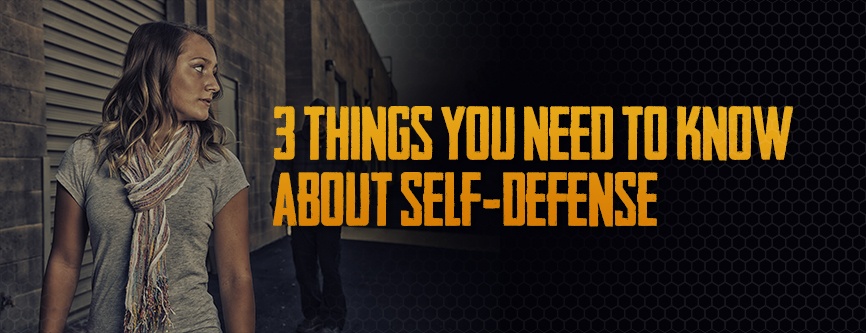3 Things You Need to Know About Self-Defense
Posted by Team Armscor on Nov 20, 2018 4 Minute Read

Whether it's home defense or concealed carry, one of the primary reasons for gun ownership is self defense. If you own a gun for this purpose, there are certain things you should know about the laws and responsibilities pertaining to using your firearm to defend your life.
Check out 3 things you need to know about self defense:
1. Stand-Your-Ground, Castle Doctrine & Duty to Retreat
Stand-Your-Ground, Castle doctrine and Duty to Retreat laws are the primary laws regarding your right to use force (including deadly force) when in imminent danger. In the United States, these laws vary by state, so it's important to know how they apply to you. Check to see if your state is a Stand-Your-Ground, Castle Doctrine Only, or Duty to Retreat state.
-
Stand-Your-Ground
Under these laws, when you are threatened with imminent deadly force and you have the ability to retreat, you don't have to. Stand-Your-Ground laws state that you can stay where you are and defend yourself. These laws often allow for self defense anywhere you have the right to be, but some states place restrictions on where you are allowed to stand your ground. -
Castle Doctrine
Castle doctrine laws generally state that you have the right to protect your home or other legally occupied place (such as your vehicle). Some states have castle doctrine laws only, meaning that, while in public, you still have a duty to retreat. -
Duty to Retreat
Under Duty to Retreat statutes, you are required to retreat to a place of safety if at all possible when posed with a serious threat. Under these laws, gun owners are only allowed to defend themselves when retreating is not possible or when retreating would put them in greater danger.
2. Concealed Carry Laws
When it comes to concealed carry laws, your ability to obtain a concealed carry permit varies greatly based on where you live. Certain jurisdictions place heavy restrictions on who can obtain a concealed carry permit and who cannot. There are a few things you should take into consideration before you decide to get a concealed carry permit:
-
"Shall Issue" vs. "May Issue" States
"Shall Issue" states require the state to issue a concealed carry permit to any person who meets the requirements of obtaining one. "May Issue" states give the issuing authority discretionary power when issuing their permits. -
Permit Reciprocity
Depending upon where you acquire your concealed carry permit, some states may respect the permit issued by your state, and others may require you to gain an additional permit from them directly. When traveling with a concealed carry, it's important to make sure you are respecting the laws of the state you are in.
3. Self Defense Responsibility
Using a firearm for self-defense is a big responsibility and, if you don't follow the letter of the law, you can quickly get yourself in trouble, put in jail or worse. Before you consider a firearm for self defense, it is important to make sure you understand your rights, the laws and the proper usage of a firearm for self defense.
In the right hands, a firearm can be used to stop an attacker and save a life. In the wrong hands, a firearm can cause irreparable damage and loss. Consider this blog to be the first step in a journey towards self defense. It's purpose is to inform you of the laws and responsibilities associated with using a firearm for self defense and should, in no way, be considered legal advice.








